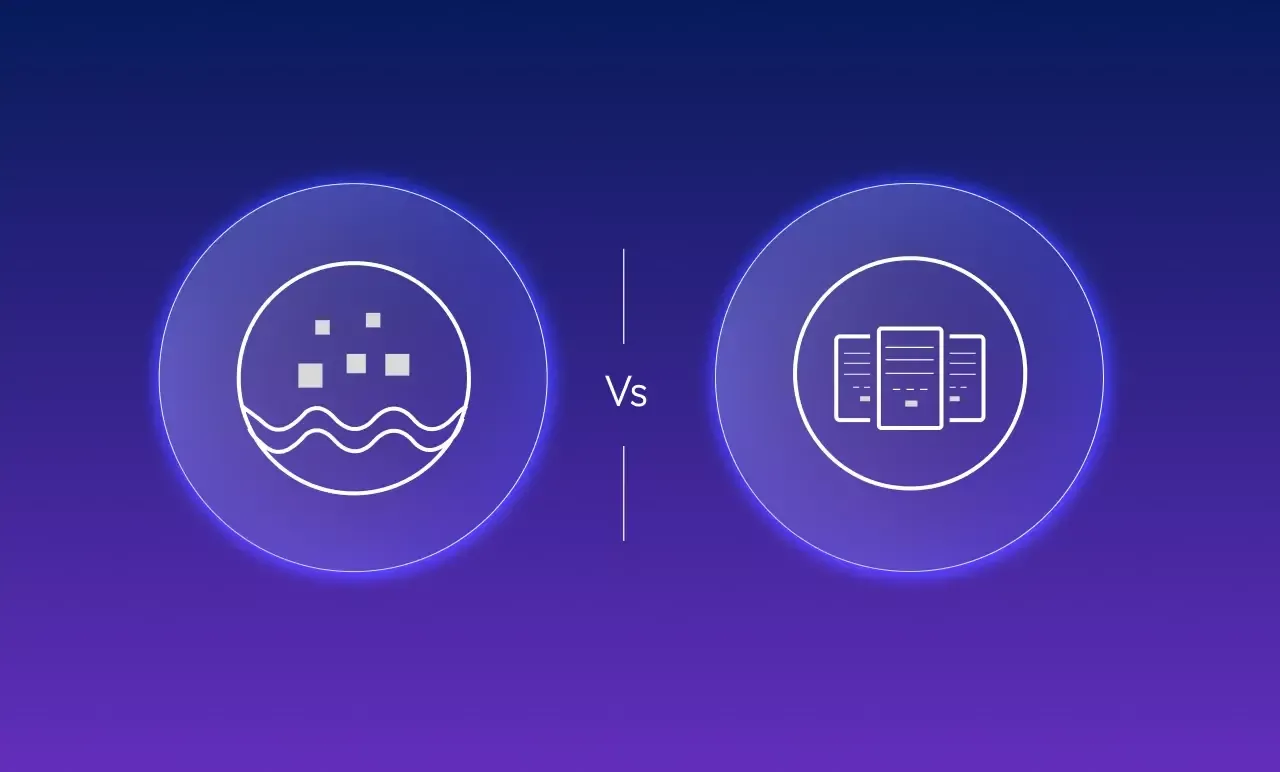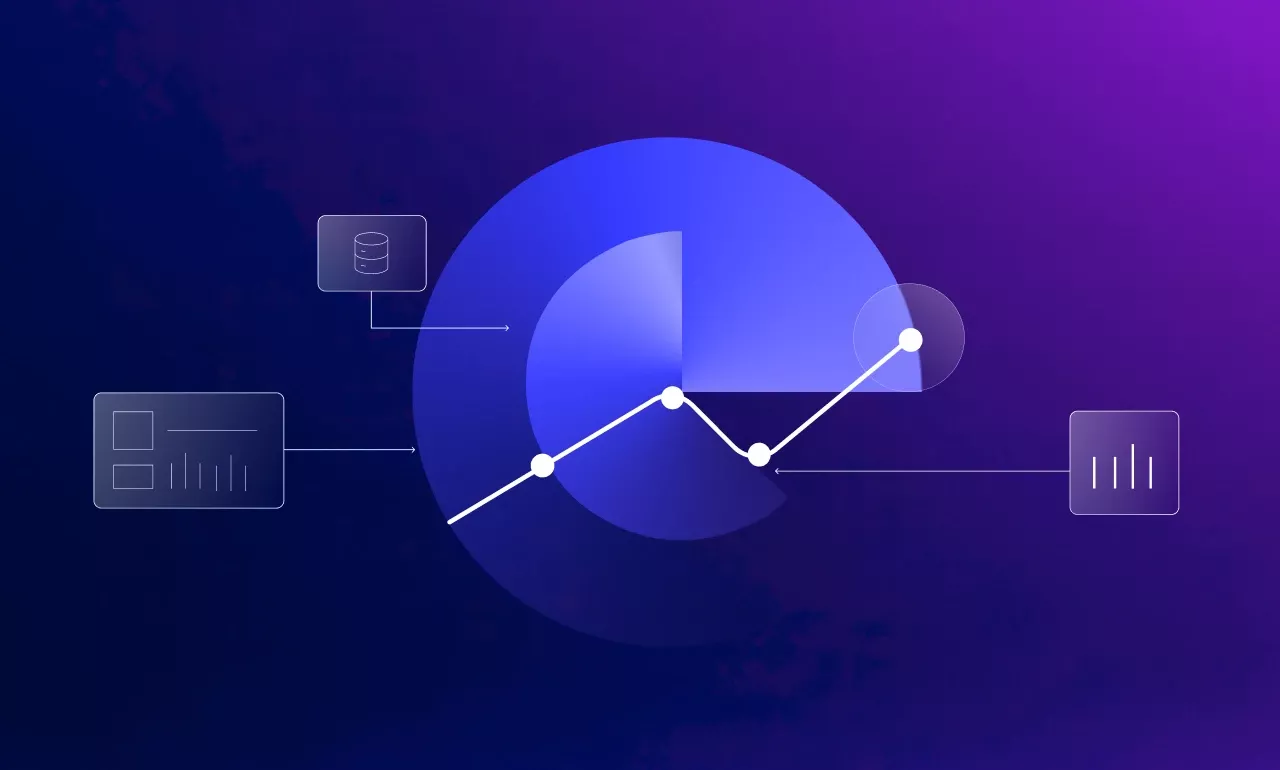Data Storage Decoded: Data Warehouse vs Data Lake Explained
Real Estate Data Analytics to Shape the Future
The real estate industry is experiencing a seismic shift, fueled by groundbreaking technological advancements. At the heart of this evolution lies the transformative power of real estate data analytics, uplifting every aspect of the sector.
However, many are still left wondering what to do with real estate data.
Forward-thinking industry leaders are leveraging it to reimagine property transactions, streamline management processes, and unlock new efficiencies.
In today’s tech-driven world, industries everywhere face a crucial choice: adapt or risk being left behind.
Real estate is no exception, and those who utilize data effectively are better positioned to thrive in an increasingly competitive market.
The Impact of Data & Analytics in Real Estate
Strategic use of real estate data analytics is a game-changer, driving business growth by enabling smarter pricing, deeper market insights, and more targeted marketing efforts.
Brokers who embrace data-driven strategies achieve faster sales, higher customer satisfaction, and increased revenue, gaining a clear edge over competitors who don’t.
If you want to find out how you can utilize real estate data analysis, here are some pointers to give you a heads-up.
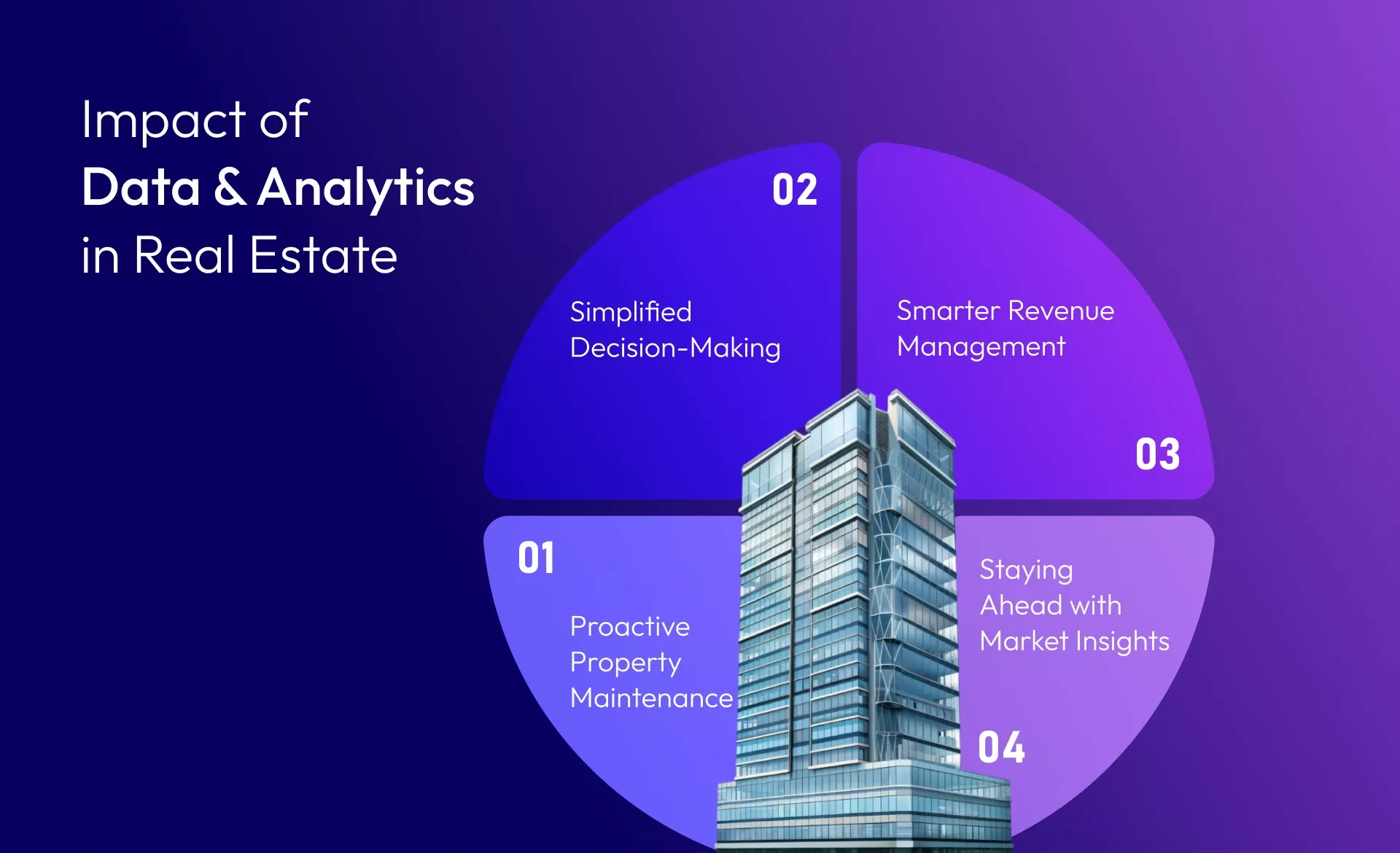
Transforming Building Construction
Data and analytics enable smarter project planning, execution, and management, propelling the construction industry toward a more efficient, data-driven, and connected future by:
- Identifying Opportunities: Firms leverage third-party insights to spot development opportunities, monitor competition, and assess market trends.
- Risk Management: Historical data helps identify potential risks and ensure proactive measures are taken.
- Optimized Operations: Predictive analytics refine project timelines, control budgets, and enhance resource allocation.
- Real-Time Tracking: IoT-driven analytics provide live monitoring of materials, labor, and equipment, improving efficiency.
- Growth Strategies: Contractors and suppliers use data insights to secure new projects and drive business expansion.
Proactive Property Maintenance
Data and analytics enable property managers to stay ahead of maintenance challenges, addressing issues before they escalate.
Predictive systems leverage sensor data to monitor equipment like HVAC units and plumbing, identifying signs of wear or irregularities early.
For example, fluctuations in temperature or energy consumption can signal potential failures, prompting timely repairs that avoid costly breakdowns.
This futuristic approach not only reduces maintenance expenses but also maximizes system lifespans and minimizes disruptions. This, in turn, ensures resources are used efficiently, delivering smarter and more reliable property management.
Smarter Buying and Selling
Real estate data analytics has streamlined the buying and selling of residential and commercial properties. Key advancements include:
- Predictive Property Valuation: Machine learning predicts property values by analyzing key factors like location, property features, and market dynamics, offering buyers and sellers better insights.
- Enhanced Property Search Experience: This uses advanced tools like -
- 3D modeling for immersive property visualization
- Aerial imagery for a comprehensive view of the surroundings.
- Virtual tours that provide remote property exploration
These innovations simplify decision-making and offer a more engaging experience for potential buyers.
- AI-Driven Property Recommendations: Smart algorithms analyze buyer preferences and match them with the most suitable listings. This results in faster, more efficient transactions and improved client satisfaction.
Meeting Evolving Client Requirements
The best brokers are experts in understanding the ever-changing factors that impact property values and investment opportunities. In today’s fast-paced, competitive market, what was relevant just a few months ago may no longer apply.
Successful brokers keep their finger on the pulse, using expert market understanding based on current data, including interest rates and market shifts.
Using this, they guide clients on the optimal times and locations to buy or sell, helping them build lasting trust with clients and, in turn, maintain their competitive edge.
Smarter Revenue Management
The integration of real estate data analysis has changed how rental pricing is determined, making it more precise and adaptive with:
- Dynamic Pricing: Algorithms analyze vast datasets on market trends, competitor rates, and supply-demand balances to optimize rental rates in real time.
- Historical Insights: Property managers leverage past data to anticipate market changes and fine-tune strategies for maximum occupancy and profitability.
- Predictive Analytics: Advanced models utilize automation for pricing adjustments, responding to market fluctuations with speed and accuracy.
- Financial Optimization: A data-driven approach ensures smarter pricing decisions, leading to improved revenue and better financial outcomes for property owners.
Gaining a Competitive Edge Through Market Insights
In real estate, success hinges on a broker’s ability to attract and serve both buyers and sellers. Just like in any competitive industry, keeping an eye on rivals is crucial.
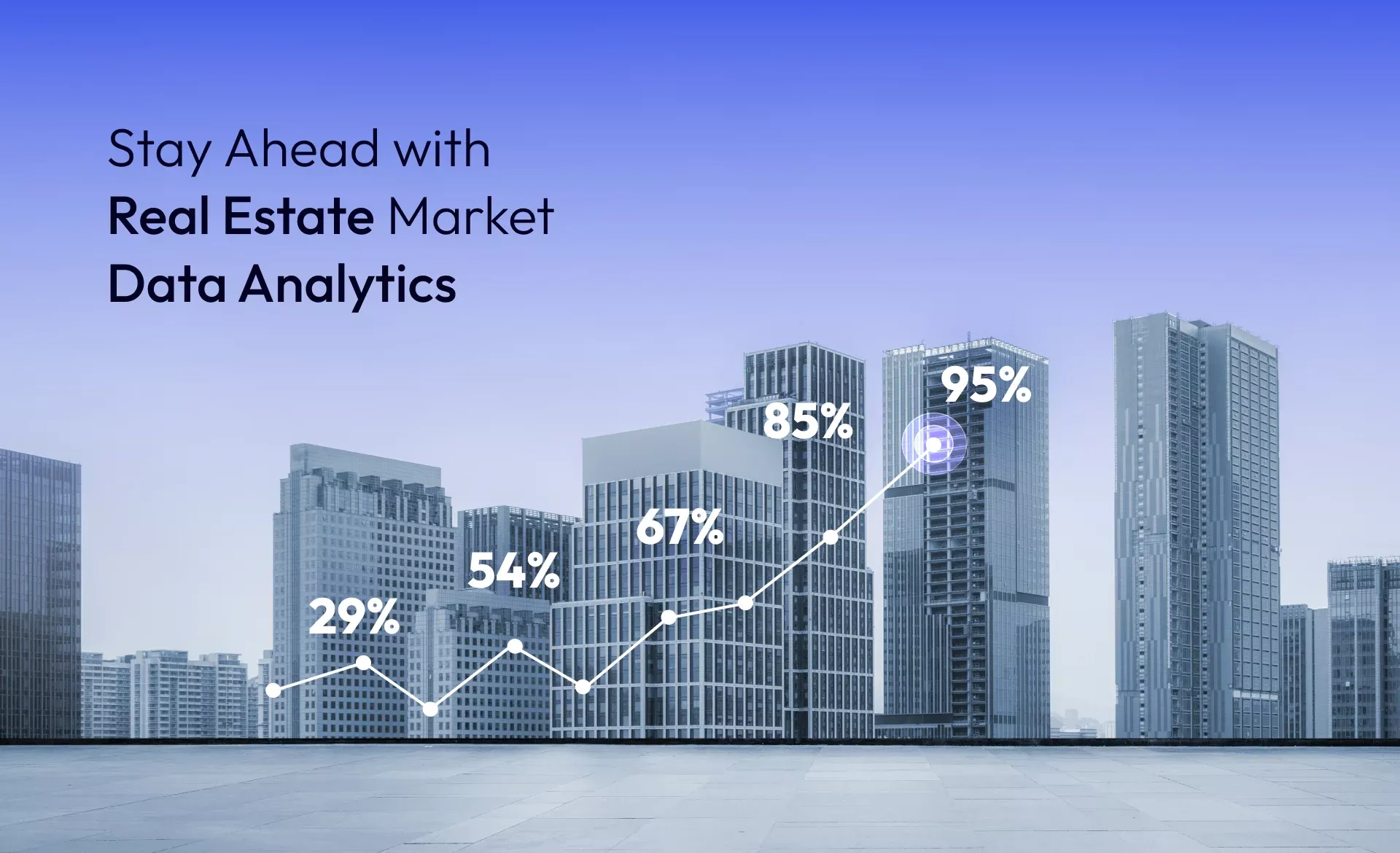
Here's how to analyze real estate market data effectively:
- Tracking Performance: Use data analytics to monitor which companies and agents are closing the most deals and how they rank in customer satisfaction.
- Competitor Analysis: Gain insights into rivals’ marketing strategies to understand their strengths and weaknesses.
- Strategic Improvement: Learn from competitors' playbooks, refine strategies, and implement better approaches to outperform them.
Simplifying Decision-Making with Data Visualization
Real estate data analytics has the power to boost performance and profitability, but its true value lies in how effectively it is utilized.
Complexity often becomes a major roadblock, discouraging even the most driven brokers.
To override this challenge, top-performing brokers rely on real estate data analytics software, which offers:
- Modern Visualization Tools: These tools transform overwhelming datasets into clear, actionable insights, making it easier to interpret complex information.
- Real-Time Dashboards & Reports: Brokers can access real-time data that simplifies the tracking of key metrics such as:
- Appointments
- Offers
- Contracts
- Sales
- Informed Decision-Making: With a clearer view of their performance, brokers can make data-driven decisions that fuel business growth and improve overall efficiency.
Generative AI: A Game Changer in Real Estate
Generative AI is at the spotlight of the stage that is real estate data analysis, giving companies a powerful competitive advantage. By leveraging large, proprietary datasets alongside third-party data, firms can create AI models that offer unique insights into property trends, tenant and owner preferences, and emerging market opportunities.
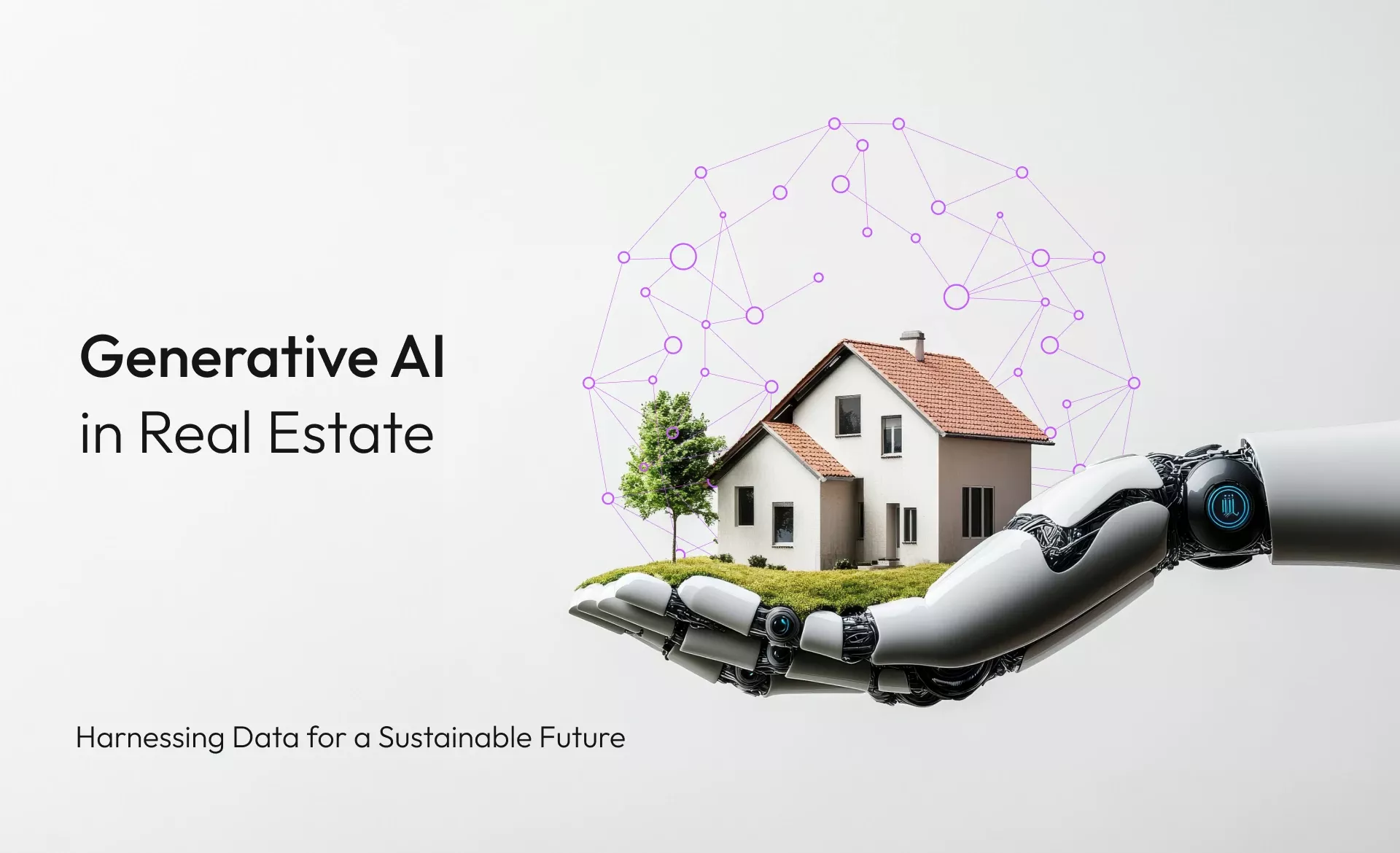
AI also streamlines complex tasks, such as optimizing property designs and layouts, improving efficiency across operations. Combining data-driven insights with AI’s predictive power enables real estate companies to develop customized solutions and maintain a leading edge in the market.
Harnessing Data for a Sustainable Future in Real Estate
Data and analytics are at the forefront of advancing sustainability in the real estate sector.
By monitoring energy consumption, water usage, and waste management in real-time, companies can identify inefficiencies and take action to reduce their environmental footprint.
Predictive real estate data analytics also help design energy-efficient buildings from the start, cutting carbon emissions and lowering operational costs.
Moreover, sustainability metrics provide transparency, allowing companies to highlight their environmental efforts to investors and tenants who prioritize green practices.
With global benchmarks and ratings, real estate operators can make informed decisions, enhancing both their sustainability performance and appeal to eco-conscious stakeholders.
Final Word
Beyond innovation, the impact of data and analytics on real estate constitutes a fundamental transformation.
By optimizing property valuations, deepening customer insights, and enhancing operational efficiency, real estate data analytics are setting new industry standards.
With 2025 sales projections forecasting a 9% rise in existing home sales and an 11% jump in new home sales, the role of data-driven decision-making has never been more critical.
As technology evolves, these tools will continue to reshape the industry, paving the way for smarter decisions, seamless operations, and safer, more profitable investments.
Email us or Talk to us at +91-98367-81929 or Simply Contact Us through the website.
Let's Connect


